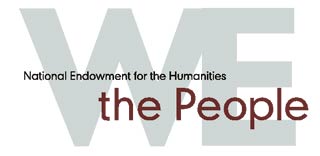The Boston Massacre
Introduction
In June 1767, Parliament passed the Townshend Acts, which levied import duties on articles including tea, lead, glass, paint, and paper and established a Board of Customs Commissioners for America to be stationed in Boston. Bostonians protested the import duties by encouraging nonimportation and nonconsumption movements in the colonies. In February 1768, the customs commissioners asked Parliament to guarantee their safety as they carried out their duties in Boston. Troops began arriving in October of that year. Many Bostonians resented the presence of the standing army in their town, and patriot leaders made concerted efforts to feed the population's animosity toward the soldiers.
As the nonimportation movement falters in January and February of 1770, some Bostonians take it upon themselves to discourage merchants from selling British goods. Importers' stores are vandalized and customers bullied. On 22 February, eleven-year-old Christopher Seider is slain as irate customs informer Ebenezer Richardson fires into a crowd. Patriots ensure that Seider becomes a young martyr in the war against import duties.
By the winter of 1770, civilians are clashing more and more frequently with the soldiers of the Fourteenth and Twenty-ninth Regiments, the last troops remaining in Boston. (Other regiments had been previously relocated.) After a series of clashes between soldiers and workers at John Gray's ropewalks during the weekend of 2 March, Bostonians are predicting additional trouble. On the evening of 5 March, a lone sentry posted in front of the Customs House is hassled by a group of young men. As the crowd swells, Captain Thomas Preston leads seven soldiers from the Twenty-ninth Regiment to reinforce the sentry, but he cannot persuade the crowd to disperse. Amidst the noise and confusion, shots are fired; three civilians are killed and two more are mortally wounded. Within hours of the episode, Captain Preston and his men are in jail, and townspeople are demanding that the troops be removed from Boston. Newspapers scramble to report the news of the tumultuous week and its capstone event.
Tories and patriots immediately blame each other for the confrontation, and both sides begin collecting depositions to support their points of view. The Tories strike first, and their account and depositions are sent to England on 16 March. Not content to let military officials talk for him, Preston speaks out from his jail cell. Patriot leaders, meanwhile, stage their own propaganda attack. A town-appointed committee drafts a narrative implying that the incident was the result of a sinister plot. Paul Revere markets an engraving that vividly depicts a bloody massacre, while others commemorate the "tragical scene" in verse.
Patriot leaders call for an immediate trial, but Lieutenant Governor Thomas Hutchinson, knowing that townspeople are demanding an eye for an eye, hopes to push the trials into the summer. The trials are ultimately delayed until fall, but in the intervening months, Richardson is tried in the death of young Seider and found guilty of murder.
John Adams, Robert Auchmuty Jr., and Josiah Quincy Jr. are retained to defend Preston and his men. Robert Treat Paine and Samuel Quincy (brother of Josiah) will prosecute. Lieutenant Governor Thomas Hutchinson, also chief justice of the Superior Court of Judicature, declines to preside at the trials. Benjamin Lynde serves in his place. Preston's trial opens on 24 October 1770, and a few days later the jury reaches a surprise verdict: not guilty. Preston's men are tried separately beginning 27 November 1770. Adams prepares a complicated defense, and six of the soldiers are found not guilty; two others are found guilty of manslaughter but escape the death penalty.
Quiet settles over Boston following the trials. Writing under the pseudonym "Vindex," Samuel Adams attempts to retry Preston and the soldiers through a series of newspaper articles, but his writings fail to rouse public sentiment as he had hoped. Adams does succeed in turning 5 March into a day of mourning, and commemorative orations are delivered in Boston each year through 1784. Years later, John Adams looks back at the events of 1770, believing that justice had prevailed.
Rowe's Revolution
"This night the 29th Regimt on Duty. A Quarrel between the soldiers & Inhabitants. The Bells Rung A Great Number Assembled in King Street. A Party of the 29th under the Command of Capt Preston fired on the People...."
Diary of John Rowe,
5 March 1770














